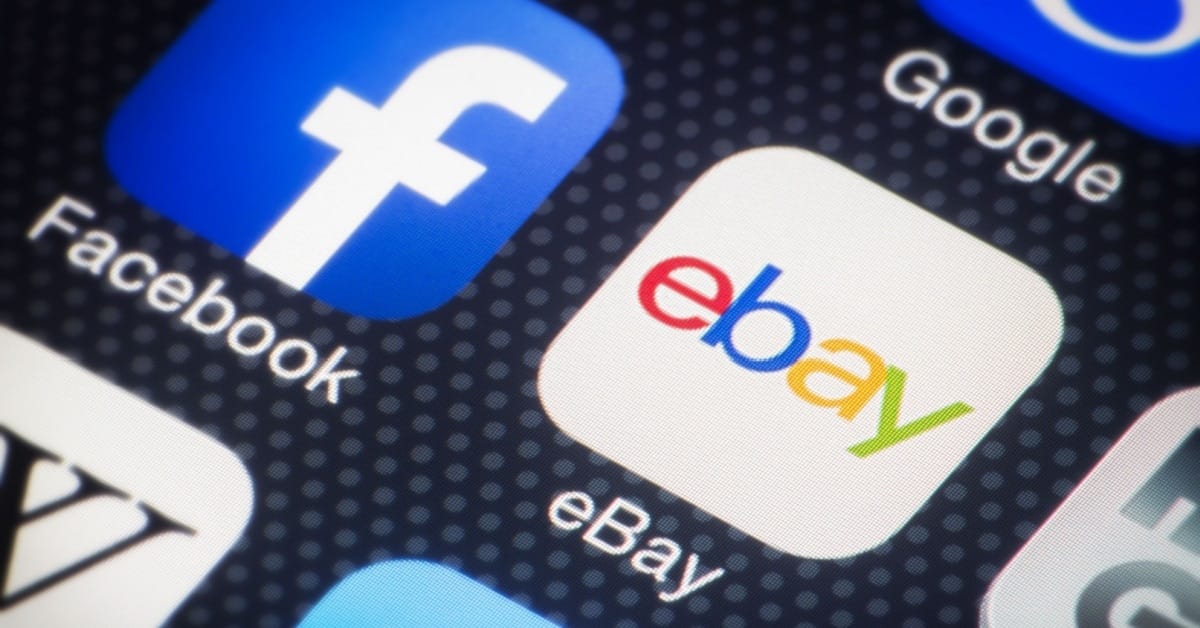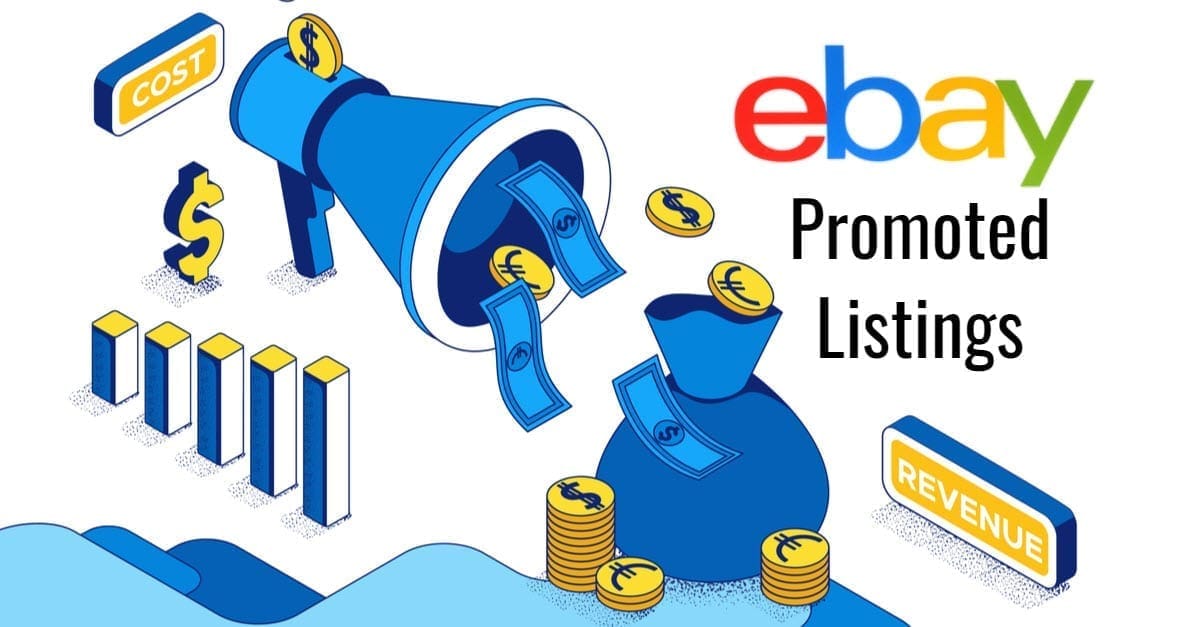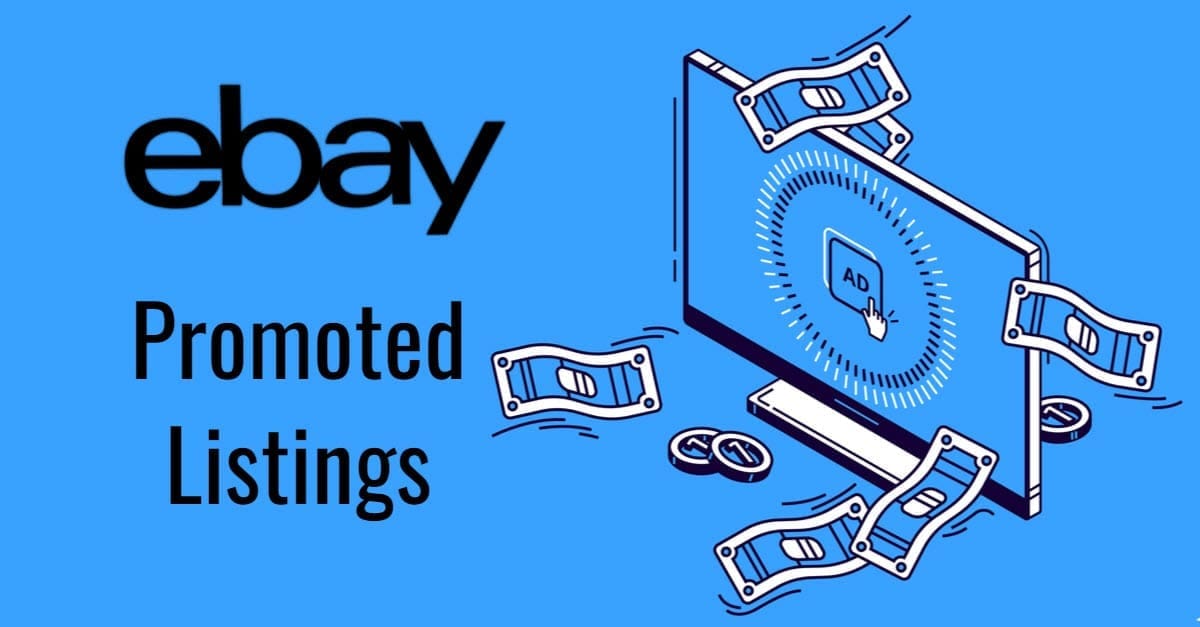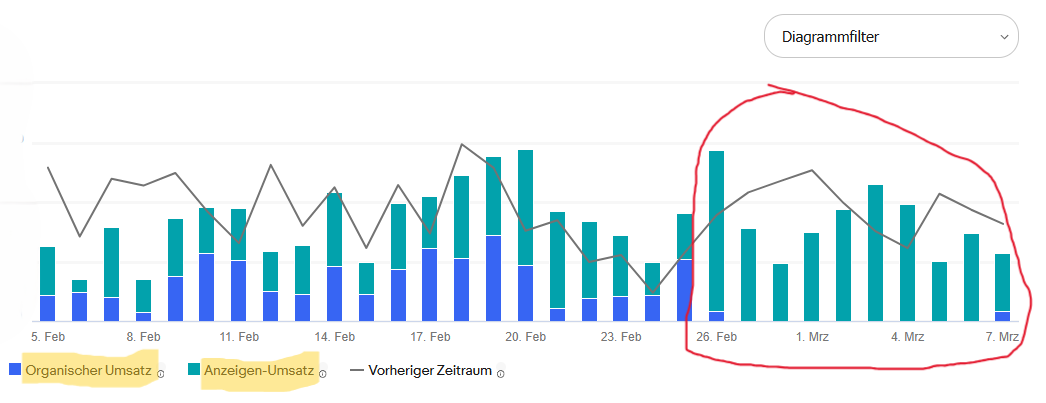eBay Expands Promoted Listings Ad Attribution In Germany - Will US Be Next?
UPDATE 5-23-25
eBay is expanding this massive money grab Promoted Listings attribution change to the UK, Australia, Italy, France, and Spain, effective June 24, 2025.

UPDATE 3-8-25
We're now about a week and half into the new attribution changes for eBay Germany and sellers are starting to share their results - unsurprisingly showing ad attribution rates rising to 80% or more as a result of this massive expansion of how eBay decides whether an ad fee will apply on a sale.
Sellers are sharing their experiences in the eBay.de community forum:
samples:
52% of my sales on 01.11.2024 calculated with ads
51% of my sales on December 19, 2024 were calculated with ads
63% of my sales on February 22, 2024 were calculated with ads
86% of my sales today (so far 5:20pm) 02/26/25 calculated with ads.
I haven't changed much in this time. For me this is a rip-off with NO added value!
This seller provided a screenshot of their ad dashboard report, showing in the days starting from February 26th, almost every sale was attributed to Promoted Listings (green) with only a tiny amount of organic sales (blue) compared to previous days under the old attribution model.
without words...see screenshot...speaks for itself...
Reminder: this update changed eBay Promoted Listings ad attribution to count "when a buyer purchases the same item advertised in the ad clicked by any buyer in the last 30 days" - meaning the sale no longer needs to be attached in any way to an actual click on an ad and these additional ad attributions do not represent additional sales or increased value to the seller in any way.
It's simply a giant money grab on eBay's part to take more ad fees on dwindling sales. Will this finally be the final straw that causes sellers to revolt and stop using Promoted Listings all together?
eBay is making major changes to Promoted Listings ad attribution in Germany, massively expanding the number of sales which will collect ad fees - will the US be next?
German sellers received notice today of changes to Promoted Listings Basic/General cost per sale ad attribution that will open up a whole new world of revenue for eBay.
The update gets rid of distinctions between Direct and Halo attribution, and instead will assess ad fees for any sale where any buyer clicked on the ad - even if that isn't the buyer who ultimately ends up making the purchase!
The new policy will go into effect February 26, 2025:
From February 26, 2025, the following will apply to items listed on eBay.de: eBay will record an attributable sale from a base campaign when a buyer purchases the same item advertised in the ad clicked by any buyer in the last 30 days.
The ad fee is charged when a buyer purchases the item advertised in a basic ad that was clicked by any buyer in the last 30 days. The item must be advertised with an ad both at the time of the click and at the time of the sale. The ad fee is based on the ad rate in effect at the time of the sale.
Yes, you read that right - if an ad has been clicked on by any buyer in the last 30 days, the seller will be charged the ad fee - even if it ends up being purchased by a completely different buyer who never clicked on the ad.
Interestingly, the update also changes the time frame in which an ad fee might apply.
Previously, if you ended an ad campaign, you could still be charged an ad fee if a sale occurred within 30 days of the last click.
Now it appears that the ad campaign still has to be active for the attribution to count, so ending a campaign stops the possibility of being charged the fee.
That may be at least some small consolation for sellers, but it's likely to be far outweighed by the fact that many more sales will now have ad fees assessed against them.
eBay's email notice to sellers about the changes provided additional information and answers to Frequently Asked Questions.
Why did eBay make this change?
We help sellers get the most out of their eBay experience and continue to invest in tools that help them reach more buyers and grow their business.
This update simplifies reporting for base campaigns while giving sellers control over their base campaign spend. You'll still only pay when your item sells.
Sellers no longer need to differentiate between direct sales and halo item sales in reports, and ad fees are more predictable because clicks on the ad and a subsequent sale of the promoted item are now attributed to promoted offers.
In other words, when a seller's ad receives a click and the item then sells, the ad fee is charged.
Sellers will continue to pay only when their item sells. They always have the option to opt out of the Promoted Listings (Ads) program or use an alternative ad product to reach more buyers and make more sales.
Will updating the allocation increase my base campaign spend?
We expect that sales will increase as a result of ads running a base campaign strategy. Therefore, spend on base campaigns may also increase. We recommend that sellers monitor their ad performance and adjust their strategy accordingly.Why is this change happening now?
We're announcing this update after the peak holiday and bank holiday season to ensure sellers aren't disrupted or distracted during the busiest time of the year.This will also hopefully give sellers enough time to observe the impact of this allocation update and adjust their strategies accordingly ahead of other seasonal moments in 2025, such as back-to-school or the holidays.
We're also announcing the rollout 30 days in advance to give sellers time to review the update, ask questions, and help eBay and the community prepare.
How can sellers disable this update?
Sellers who list items on ebay.de and promote them with a basic campaign strategy cannot opt out of this update.However, you have the option to terminate your participation in the advertising program at any time or to use alternative eBay Advertising products such as ads with a premium campaign strategy, external ads and shop ads.
What is eBay doing to prevent competitors from clicking on ads to trigger the 30-day organic buyer period?
eBay takes spam and fraudulent activity seriously and uses robust technologies and processes to ensure the safety of buyers and sellers.
Sellers are discussing the changes in the eBay.de community forum where eBay staff are answering questions - including mentioning that Priority/Premium cost per click ads will have exclusive access to the top spot in search and a tidbit about clicks from social media sharing that may reveal more about what is driving eBay to make these changes at this time.
A seller promotes their products through other channels such as social media and email. Will this updated attribution logic now also take those sales into account (and calculate the ad rate)?
- If a buyer clicks on the advertised listing and the item is sold within 30 days to any buyer, who may be different from the one who clicked on the ad, the seller will be charged the advertised item's advertising rate at the time of sale.
- In the scenario where the buyer purchases the advertised item after clicking on a social media post or email but never clicked on the ad, the seller would still see a sale attributed to the advertised listings and would be charged the purchased item's ad rate at the time of the sale if there was at least one click (from anyone) on the ad for the sold item within the last 30 days.
What happens to attribution for direct sales and halo item sales for campaigns with a base campaign strategy?
- For items listed on ebay.de and promoted with a basic campaign strategy, direct attribution and halo item attribution will no longer be used for reported sales or when collecting advertising fees.
- However, direct and halo item assignment will also be available in the future for items that are listed outside of ebay.de - for example on ebay.com or ebay.co.uk - and advertised with a basic campaign strategy. Find out more
- Campaigns that use a Premium strategy are not affected by this attribution update.
Does this put sellers on ebay.de at a competitive disadvantage?
- No. The new attribution logic will be applied to all items listed on ebay.de and promoted with a basic campaign strategy.
- In addition, sellers who list offers on ebay.de now have exclusive access to the first position of their ad in the search results if they promote their offers with a premium strategy.
- These and other improvements to the Premium Campaign strategy are intended to give sellers who use a CPC strategy an advantage in this (ebay.de) highly competitive market.
"In the scenario where the buyer purchases the advertised item after clicking on a social media post...but never clicked on the ad, the seller would still see a sale attributed to the advertised listings and would be charged the purchased item's ad rate at the time of the sale if there was at least one click (from anyone) on the ad for the sold item within the last 30 days."
That part of the new policy could prove particularly important as eBay looks to capitalize on their new partnership with Meta that will allow eBay items to be shown on Facebook Marketplace in Germany, France, and the US.

The move came as part of Meta's response to the European Commission's November 2024 decision imposing a €797.72 million fine for breaching EU antitrust rules and an ongoing lawsuit from the US Federal Trade Commission over similar anti-competitive concerns.
Importantly, while the listings will be shown to users on Facebook Marketplace, all aspects of the actual sale will still go through eBay - making them subject to any and all applicable eBay fees, including ad fees.
Many sellers assumed the partnership would be used as a way to push them into using eBay's Offsite Ad cost per click product (and eBay may still go that route as well), but with this new attribution model, at least in Germany they won't need to - once it goes into effect, they'll be able to see immediate additional monetization from many of those Facebook Marketplace clicks if those items are enrolled in Basic/General cost per sale ad campaigns.
Germany is often used as a testing ground for policies and new features that eventually find their way to other markets - for example, when eBay dropped their Promoted Listings Express ad offering and added auctions to Promoted Listings Basic/ General instead, they started in Germany.
Given that history, and the Facebook partnership, it won't be surprising if this new attribution model expands throughout this year and may even include the US at some point "soon" - especially with eBay being increasingly desperate to increase ad revenue by any means necessary.
We've already seen Promoted Listings ad rates jacked up with no notice to sellers in the weeks leading up to Black Friday and the busy holiday shopping period.
First, sellers noticed in early November that the Promoted Listings Dynamic ad rate minimum had been raised from 2% to 5% with no notice to sellers.

Then, even more alarmingly, eBay also instituted a massive 10X minimum bid increase on Promoted Listings Priority cost per click ads, going from $0.02 to $0.20 per click - again with no notice to sellers.
When eBay was publicly called out for these shady tactics, they tried to cover their tracks by issuing a Marketing Terms Update which allows them much more wiggle room to make future ad rate and attribution changes at any time with no notice to sellers required.

The Meta partnership news sent eBay's stock price soaring to its highest point in almost 2 years, and while it has since come back down a little, it's clear investors believe it will positively impact eBay's financial performance.
While some analysts cautioned the limited partnership might take a year or more to provide a significant increase in sales/GMV, this change to ad attribution could help eBay spin a much more positive near-term story for the coming quarters.
Germany was also the first location where eBay announced fee-free sales for private, consumer sellers in 2023. Is this new ad fee money grab perhaps a sign that fee-free private selling in Germany has cut deeper into revenue than CEO Jamie Iannone has let on?
eBay is adding buyer fees in the UK next month to help remonetize fee-free sales there but if they need a revenue boost for Germany too, buyer fees would likely not be a viable immediate solution - investors are already nervous about how it's going to work out in the UK and everyone is holding their breath, so adding another market when they haven't even proven it will be accepted in one yet would be very risky.
The ad attribution change is risky in its own ways of course but is still technically voluntary and while it will most likely impact business sellers more than private, most business sellers will swallow it easier than they would a direct final value fee increase - so maybe it's the path of least resistance to try fill any fee-free private selling revenue hole with some extra on top?
That of course will only be true if sellers continue to be willing to pay to play - but even that may have its limits and eBay could find that sellers will eventually figure out the only way to win Promoted Listings poker against the house is not to play at all.
What do you think of eBay's new ad attribution model for Germany? Will you continue to use Promoted Listings cost per sale ads if these changes come to the US as well? Let us know in the comments below!






















